Presentation on the topic of rules of conduct in everyday life. Fire safety at home: rules
Life modern man takes place in houses and apartments. Every environment has many hazards that can cause harm to yourself and the premises. That is why safety at home is important, which adults and children must observe.
Types of hazards
Hazardous situations that may occur indoors include:
Skillful teaching and training of employees, development of safe behavior skills. These processes lead to changes in legislation, which usually lose power and responsibility for the implementation of occupational health is transferred to the employer; He himself is entrusted with regulating the problem by his own internal rules or regulations. This is especially noticeable during the period of political change, when many legislative acts, mainly executive acts, were repealed, and many changes were made in the direction of generalizing their content.
- fire: occurs due to negligence or defects in electrical wiring and equipment;
- gas explosion if there is a leak;
- shipments of gas or chemical components;
- exposure to electric current.
In addition to these factors, there may be flooding due to faulty plumbing. In villages, something often happens that involves heating the stove. If violated, liquefied gas cylinders may explode.
At the same time, we are witnessing a reverse process, where workers, laborers, workers, health workers and scientific and technical personnel are rising to the responsibility of finding their place in regulations. It is known that this rule is a later act in relation to human activity and her life. You might assume that the rules come before the recipe is created. They are the ones who are to some extent overloaded to develop a recipe - they turn into a recipe. At the same time, the reverse process occurs - the rules lose their power in favor of the rules.
Causes of dangers
Unfavorable situations are often associated with a person's failure to follow safety rules. Common reasons include:
- negligence;
- violation of instructions for using devices;
- careless handling of fire.
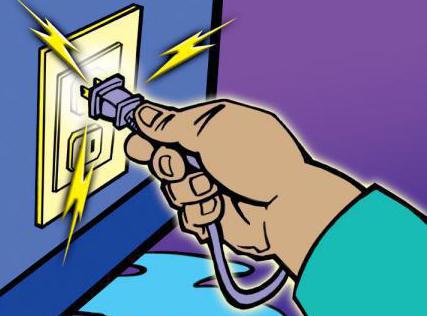
To avoid dangers, it is important to follow safety precautions at home. Moreover, children must be accustomed to them from childhood.
Thus, security practices, like rules, are not constant and unchanging in practice. They are constantly changing - they are evolving. In conclusion, we can say that this material is living and variable. It is therefore important that those involved in work processes continue to improve their skills in creating appropriate working conditions in accordance with current legal and technical decisions.
In particular, we are talking about the implementation of enterprise management systems, one of which is occupational safety and health management. The system is playing important role in occupational risk assessment and identifies threats in the system, which imposes on us the ability to identify them, as well as correctly identify preventive actions for each identified threat. Prevention activities will be dominated by occupational health and safety regulations. Unavoidable rules that are necessary in a particular situation to protect the health and welfare of workers will be subject to internal regulation in the workplace - usually health and safety regulations, commonly referred to as employment regulations.
Electrical appliances
Often, even with the use of a familiar device, there is a danger to life and health. This can be observed due to violation of the rules, as well as other factors, for example, an increase in electrical voltage in the network, or a leaking faucet.
To know how to avoid dangerous situations, you must follow simple rules security. This applies to the entire surrounding house. There are also recommendations for cases where it is necessary to reduce Negative consequences when dangers arise.
In the workplace, we are in the business of creating safety and health regulations that, as a non-working employer, are designed to create a work climate in which there is real protection for the worker from hazards and unexpected dangers. At the same time, it should be emphasized that there is generally no division of labor standards at the working level, since there is no need for this. There the rules should be stated so that when they are presented to the employee, they give him a sign of safe conduct and behavior.
They must be presented in a simple, clear and understandable manner for the employee. In what documents can you find OSH? Health and safety instructions for work. Preventive measures adopted in occupational risk assessments carried out at the workplace and by the workers themselves.
How to use electrical appliances?
Fire safety in everyday life involves following the rules for using electrical appliances. Electricity, passing into the human body, heats it and forms a burn. The consequence may be damage to internal tissues. It also causes cardiac or respiratory arrest.
Technical and design instructions for machinery and equipment regarding their safe use. Safety data sheets related in part to their storage and safe use during production. Detailed preliminary and intermediate learning programs in the field of OSH.
Knowledge of safety rules is important For. Providing training on occupational health and safety issues, in particular vocational training. Study of the causes and circumstances of industrial accidents. Selection of personal protective measures, protective clothing and protective clothing.
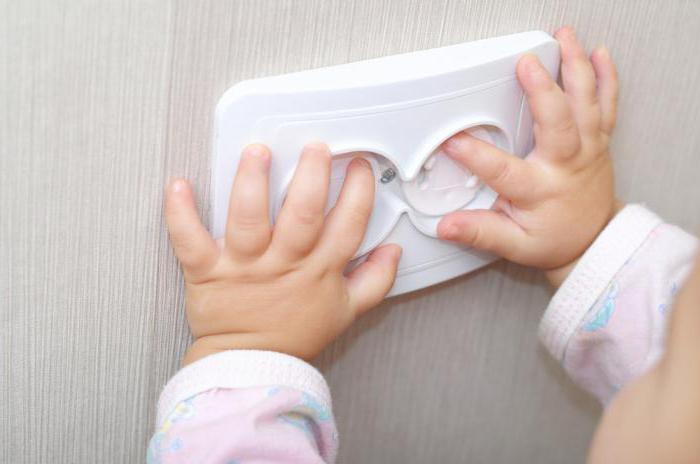
To prevent this from happening, it is necessary to observe the following in everyday life regarding the use of electricity:
- no need to use broken or faulty devices;
- it is forbidden to leave equipment turned on unattended;
- Do not connect several devices to one outlet;
- It is important to follow the sequence of connecting equipment to the network: first, the cord is connected to the device, and then to the network;
- turning off the equipment occurs in the reverse order;
- Do not touch the operating device with wet or damp hands;
- If the device malfunctions, it must be thrown away or given to a technician for repair.
It is forbidden to extinguish electrical appliances powered by the network with water. These simple rules will help you avoid many unpleasant situations.
Moving using transport. Manual processing of materials. On construction site, in the workshop, etc. Health and safety regulations always apply when the issue is not covered by occupational safety and health legislation. In addition, health and safety legislation imposes certain standards to protect the health and welfare of workers and other protected persons. In unusual situations, occupational health and safety regulations may be required to ensure the safety of people involved in work processes, as compliance with occupational safety and health laws is sometimes insufficient.
Rules for using a computer
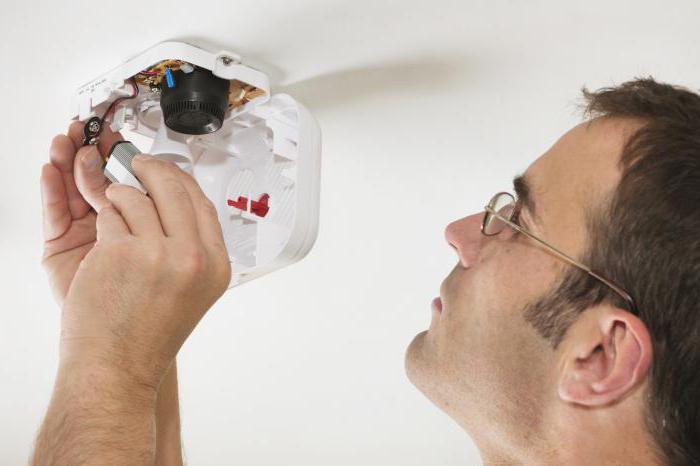
Safety at home involves correct use computer. This technique is an irreplaceable thing at home, but due to illiterate handling there is a risk of harm to health. The rules for using a computer include the following:
Therefore, safety rules were found in the content of the safety instructions. Circumstances called labor protection instructions or safety instructions relate to the workplace and are an indicator of the worker's safety at work. It tells you how you need to perform safety operations at each stage of production. The employer is obliged to provide employees with continuous use, current instructions on labor protection.
Used in the factory for technological processes and work related to emergency situations or health hazards for workers. Maintenance of machines and other technical devices. Production of hazardous and hazardous materials. First aid. Preliminary work.
- the monitor should be at eye level;
- should not work in a darkened room;
- Children can be at the computer for no more than 25 minutes;
- After each lesson you need to do exercises.
The same rules apply for adults. Using them will prevent harm to health.
Properties of domestic gas
Many homes have gas stoves used for cooking. It is important for adults and children to observe the basics in everyday life. Constantly applied electrical devices: irons, lamps, televisions. This technique operates from an electrical outlet and switches.
Rules and methods safe work. Activities to be carried out upon completion. Rules for emergency situations posing a threat to the life or health of workers. They should be addressed to the service department. The instructions are not fixed. With the development of science and technology, changes in technology and working conditions, and finally, thanks to the enrichment of our life experiences, the content of OSH instructions must be supplemented and adapted to new conditions or circumstances of practice.
If you make any changes to the safety instructions, you should always consult the person who maintains the machine or technical device. For safety reasons, all changes must be communicated to the employee as they may protect him or her from accident and workplace management due to legal and financial difficulties. The need for OSH training is a great need and even a requirement to know the principles of OSH. These persons must inform workers about the need to work safely in accordance with OSH requirements specified in occupational safety instructions, occupational hazards and other occupational health and safety regulations.
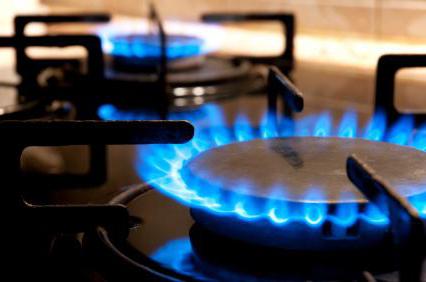
Household gas is used not only for cooking, but also for heating water. For this purpose, stoves or speakers are installed in houses. Gas can be liquefied and main gas. It is colorless and odorless, and special substances with a specific odor are used to detect leaks.
This applies in particular to new members. Well-executed training provides confidence and assurance that the employee will behave safely. At the same time, remember that older workers forget about occupational safety, correct behavior and fall into a routine. This is the danger of new threats, which we can call “negative motives for occupational safety.” Therefore, it is important to remember to periodically train older workers and remind them of applicable health and safety policies and procedures.
Principles of occupational safety and health culture. By providing employees with knowledge about various areas occupational health and safety, we also care about their safety culture and personal culture. These are essential elements in every area of the workplace. An enterprise's high safety culture should characterize each employee's personal responsibility for the safety of their daily work.
Rules for using gas appliances
Due to a gas leak, a person may be poisoned and the room may explode. To prevent this, human safety at home is important:
- to ignite a gas burner, first bring a match and then open it gas tap;
- Burners should not be left running unattended;
- it is important to control that the liquid does not flood the flame;
- If the burner goes out, you should not light it again: you need to turn off the stove and open the windows for thorough ventilation.
Even standard gas stove can cause a lot of trouble if you don't follow simple safety precautions. Because when burned, gas releases toxic components into the space. Therefore, when gas is burning, the window should be open and the door in the kitchen should be closed. The burner flame should be blue without yellow or red tints.
Demonstrate an attitude of active and constant concern for the safety of yourself and others. Personally identify and respond to hazardous situations in the workplace and take corrective action. Building a safety culture requires constant attention not only to employee behavior, but also to the physical work environment and individual characteristics workers. To effectively create and support high level workplace safety culture, follow the below organizational methods, which overlap the majority and even with provisions Labor Code.
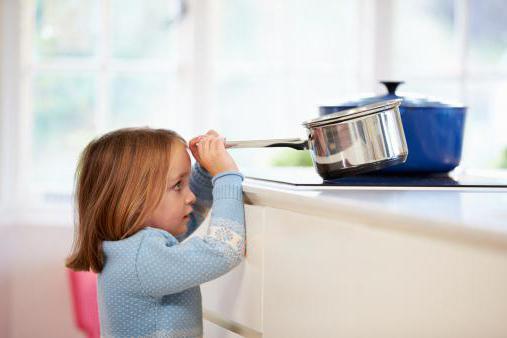
Kettles and pots with a wide bottom must be placed on a high stand, otherwise the access of air to the burner is reduced and incomplete combustion of the gas occurs. Preschoolers and persons who do not know the rules for using equipment are prohibited from working with such devices.
Expressing leadership and control over personal interests, commitment and concern for occupational safety and health. Consult with employees on occupational safety issues. Reliable and systematic information about risks for all employees, protective measures and any undesirable situations that arise in the workplace. Set clear boundaries between an employee’s “mistake” and “mistake.”
Using people's knowledge, skills and experience. Encourage all employees to submit their opinions and suggestions regarding occupational safety and health. Involving employees in the development of internal safety standards and documents, for example involving employees in risk assessments.
Gas devices must be clean and in good working order, because then their normal operation. When the ground freezes, there is a risk of underground gas pipelines rupturing. Gas has the property of spreading over long distances, including into non-gas-free premises. Therefore, open fire should not be used in basements. If there is a smell of gas in the entrance, apartment or basement, then you should report this by calling 04. Until the emergency service arrives, you should avoid open fire and ventilate the room.
Vocational training and development in the field of occupational safety and health, including practical skills adapted to the specifics of the job and the current needs of employees. Analysis of industrial accidents and industrial accidents occurring in the workplace, studying the causes of their occurrence and taking preventive measures.
Reward employees and provide approval and recognition to those who work safely and engage in activities to improve workplace safety. Promote safe behavior also outside of work. Maintenance good relations between management and employees and an atmosphere of understanding and trust between employees in a given organizational unit and between employees from different departments and organizational levels.
It is necessary to save gas. It should not be allowed to work for a long time without utensils. It is important to control the flame of the burners; for example, after boiling water, you need to turn it down. If there are burners of different power, then you need to use large dishes only in rare cases. Due to prolonged boiling of water, scale forms in kettles. During cooking, you need to cover the dishes with lids, which helps save about 15% of gas.
In modern managed companies, an integral part of management and image creation is the creation of a safety culture. The measurable effects of a strong safety culture reduce accident rates and reduce property losses. IN last years There is more and more talk about a culture of safety outside of work - on the road, at home or during leisure. This is especially important at a time when new forms of employment are emerging and many companies are undergoing restructuring. This causes, in particular. large fluctuations in staffing table, attracting more contract employees, frequent changes in work environment and outside work.
Rules of conduct in the event of a gas leak
If the smell of gas is detected, you must turn off the stove. Then you need to turn off the gas valve. Actions that cause sparking or increase in air temperature should not be allowed.
It is forbidden to touch electrical switches, as this will cause a spark. It is important to ensure home ventilation with open windows. The premises must be vacated and called
Devices with mercury
Safety at home involves the correct use of devices with mercury. This substance is found in fluorescent lamps, thermometers, and pressure measuring devices.
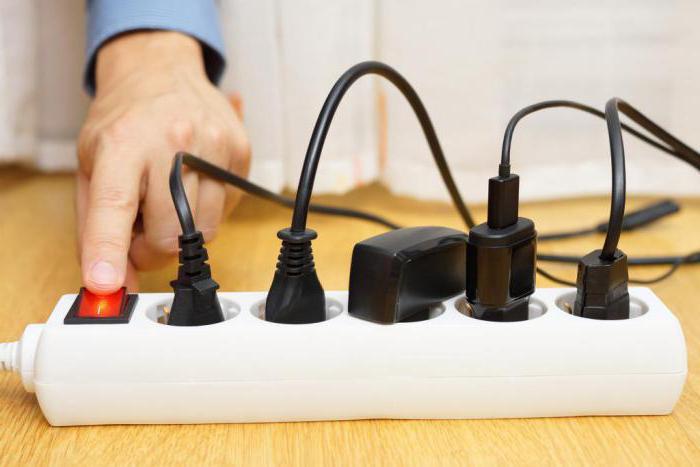
There are thermometers in every home. Since they are made of glass, they break easily if dropped. Mercury rolls out into various parts of the room. Lamps are often disposed of with regular waste, where they break down in bins and release the vapors into the atmosphere.
Negative properties of mercury
This substance is heavy liquid metal silver color. In small quantities it appears in the form of moving balls. Because of this, mercury passes through cracks in floors, into furniture, walls, and when accumulated, it causes air pollution.
Freezing of mercury is observed at -38.9 degrees. Its evaporation occurs when room temperature, and the vapors are colorless and odorless. The substance enters the body through the lungs, stomach, and skin.
Mercury vapor is dangerous. Chronic poisoning with the substance causes a metallic taste in the mouth, loose gums, and intense salivation. Such poisoning can occur in any room where mercury comes into contact with air. Small droplets of mercury that have penetrated under furniture or linoleum are very dangerous. Their evaporation is very fast.
When children breathe in hazardous air, they develop severe pneumonia within a few hours. Symptoms include cough, shortness of breath, and fever. Severe poisoning causes pulmonary edema. Diarrhea, drowsiness, and nervous agitation often occur.
What to do if there is a mercury spill?
Safety rules at home will help you learn what to do in the event of a mercury spill. The most dangerous particles are those that have penetrated under linoleum, furniture, and baseboards. If the device falls and breaks, you need to carefully collect the visible particles in a sealed bottle and treat the area with a rag soaked in a solution of potassium permanganate.
After this, it is important to contact a specialized institution, which will check whether there are couples in the premises harmful substance. If they are present, employees must eliminate them. Mercury fluorescent lamps It is advisable not to use it, since one broken device has a high vapor value, which is unacceptable for humans.
Human safety at home is important in any room, since compliance with the rules reduces the risk of adverse situations. Following simple recommendations will help ensure comfortable life yourself and your loved ones.
§ 4. Ensuring personal safety in
various everyday situations
Under certain conditions, when using well-known equipment and devices at home, dangerous situations may arise for you, for your loved ones and for your home.
It is necessary to know how to avoid the occurrence of a dangerous situation in everyday life, and if it does occur, to reduce its harmful consequences.
Life is the daily way of life of a person. To create the necessary living conditions, our houses are connected to electricity, hot and cold water, gas, in multi-storey buildings The elevator is working. Every house and apartment has various devices and household appliances that provide the use of water, electricity and gas.
In one case, you yourself can create a dangerous situation by violating the rules for using equipment and household appliances. In another case, a dangerous situation may arise regardless of you: the electrical voltage in the network has increased sharply, the faucet is leaking, turning off the water in the bathroom, etc.
Safe handling of electricity
In the house, electricity provides lighting, heating, cooking, operation of various household appliances, television, and radio equipment. At the same time, electricity under certain conditions poses a serious danger to human life and health.
To avoid this, you must follow a number of generally accepted rules when using electricity:
Monitor the good condition of electrical appliances and the cords with which they are connected to the network.
Do not use faulty electrical appliances, homemade electric ovens, heaters.
Do not repair electrical plugs with electrical tape. Replace them if they are broken.
Never leave a switched-on electrical appliance unattended.
Do not plug more than one plug into an outlet.
Follow the order of connecting the device to the electrical network: first connect the cord to the device, then to the network, disconnect it in the reverse order.
Do not handle electrical appliances with wet hands.
Do not keep plugged-in appliances in the bathroom; remember:
cannot be used electrical devices while in water.
Repair any exposed exposed areas or broken electrical wires immediately.
Do not make temporary wire connections.
Safe handling of household gas
Currently, household gas is widely used in everyday life. Household gas has neither color nor odor, but in order to detect its leak, special gases are added to it.
substances that have a specific odor.
A gas leak can lead to human poisoning and explosion of the premises. To prevent this, you must follow a number of safety rules when using household gas:
To light a gas burner, first hold a lit match and then open the gas valve smoothly and carefully.
Do not leave gas burners on unattended.
Make sure that the heated liquid does not flood the burner flame.
If you notice an extinguished burner, do not try to light it again - this may lead to an explosion, turn off the gas supply tap, open the window and ventilate the kitchen.
Wait until the burner has cooled down, clean it, blow out the gas supply holes and only then light it again.
If you smell gas in the room, do not light matches or turn on lights or electrical appliances until the gas leak has been eliminated and the room has been completely ventilated.
If you notice the smell of gas in the entrance of the house, immediately call the emergency gas service by telephone “04” and provide the exact address.
Announce the danger to all residents of the house, do not use open fire or electric bells.
Open the windows and doors in the entrance and thoroughly ventilate it. Upon arrival of specialists gas service Tell them the source of the gas leak and follow their instructions.
Safety precautions when using water in the home
Water enters the house through pipes and is distributed to the bathroom, kitchen and toilet, where there are special devices(taps, mixers, etc.).
When these devices are used in accordance with necessary rules, no dangerous situations arise.
These are the rules:
Never leave a tap with running water open unattended.
Never leave a tap open if the water is turned off. The water can be turned on at a time when no one is at home, and it will flood the room.
Never throw garbage down the toilet - you can clog the drain, and sewer water with all its contents will begin to flow into the house.
Do not ignore faulty taps, water leakage into heating system and in the water supply. Tell an adult about everything you noticed and show the location of the problem.
Safety measures when using household products
chemistry
Remember a number of rules when using funds household chemicals:
All household chemicals are potentially dangerous. They should only be used for their intended purpose, in accordance with the directions on the label.
All household chemicals must be stored separately and away from food products and medicines and must have the original label.
Household chemicals should be stored in dry, well-ventilated areas. They cannot be stored in the living room, kitchen, or bathroom. In a city apartment, it is preferable to store household chemicals in toilet room or on the loggia.
Household chemicals are subject to mandatory destruction if their expiration date indicated on the label has passed, or the label with the name of the drug and instructions for its use is lost or damaged.
It is necessary to use any household chemicals only as written in the instructions.
Bulk household chemicals should be dosed with a spoon, liquid household chemicals should be dosed with a measuring cap, and poured using a funnel.
After finishing work, wash the spoon and funnel thoroughly and put everything in designated storage areas.
Cannot be stored food products in containers free of household chemicals.
Aerosol cans must not be stored near gas or electric stoves and other heat sources, you must not work with them while they are turned on. gas burners. Do not attempt to open even a used cylinder.
Safety precautions when working with tools
Place cutting and piercing objects in a visible place at the workplace.
Before work, clear your workplace of all foreign and unnecessary objects and tools.
Securely secure the workpiece in a vice or some other clamping device.
The cutting surfaces and sharp edges of tools should be directed in the direction opposite to the body.
Keep your fingers holding the workpiece at a sufficient distance from the cutting edges.
When working, the body position must be stable.
When working with cutting tool having electric drive(electric drills, power saws), extreme caution must be taken taking into account the speed of rotation of the parts.
If you feel an electric shock while working with a power tool, you must stop working until the insulation damage is repaired.
When working with cutting power tools, clothing should be such as to prevent parts of clothing from getting into the edge or moving parts of the tool.
The tool should only be turned on after you have fully prepared workplace and take a stable position.
Once the machining operation is completed, the tool must be switched off.
conclusions
1) Various devices and household appliances that provide the use of water, electricity and gas pose a serious danger to human life and health. Therefore, when using them, you must be careful and follow certain rules security.
2) If a dangerous situation arises at home, you need to know how to reduce its harmful consequences.
3) Care must be taken when using household chemicals.
4) There are safety rules when working with cutting tools.
Questions
1. What, in your opinion, are the most dangerous places at your school in terms of the possibility of injury?
2. Why do gymnastics classes account for more than half of all injuries sustained in physical education classes? Justify your answer by reading the Additional Materials section.
3. Why is household gas dangerous? What safety precautions for using it do you know?
4. What household chemicals do you use in your home? What safety precautions must be followed for handling them?
Exercise
Using Internet materials, think over and prepare a message on one of the following topics: “Personal safety when using household chemicals,” “Personal safety when using a gas stove.”
